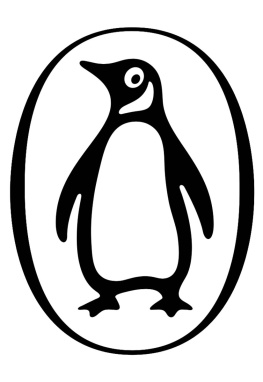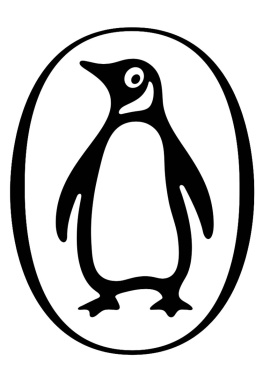Carl von Clausewitz
17801831
Carl von Clausewitz
On the Nature of War
TRANSLATED BY
J . GRAHAM
PENGUIN BOOKS GREAT IDEAS
PENGUIN BOOKS
Published by the Penguin Group
Penguin Books Ltd, 80 Strand, London WC2R 0RL , England
Penguin Group (USA) Inc., 375 Hudson Street, New York, New York 10014, USA
Penguin Group (Canada), 10 Alcorn Avenue, Toronto, Ontario, Canada, M4V 3B2 (a division of Pearson Penguin Canada Inc.)
Penguin Ireland, 25 St Stephens Green, Dublin 2, Ireland (a division of Penguin Books Ltd)
Penguin Group (Australia), 250 Camberwell Road, Camberwell, Victoria 3124, Australia (a division of Pearson Australia Group Pty Ltd)
Penguin Books India Pvt Ltd, 11 Community Centre, Panchsheel Park, New Delhi 110 017, India
Penguin Group (NZ), cnr Airborne and Rosedale Roads, Albany, Auckland 1310, New Zealand (a division of Pearson New Zealand Ltd)
Penguin Books (South Africa) (Pty) Ltd, 24 Sturdee Avenue, Rosebank 2196, South Africa
Penguin Books Ltd, Registered Offices: 80 Strand, London WC2R 0RL , England
www.penguin.com
Vom Kriege first published 1832
This translation first published by Routledge & Kegan Paul 1908
Published in Penguin Classics 1982
This extract published in Penguin Books 2005
Taken from the Penguin Classics edition of On War, edited by Anatol Rapoport
Except in the United States of America, this book is sold subject to the condition that it shall not, by way of trade or otherwise, be lent, re-sold, hired out, or otherwise circulated without the publishers prior consent in any form of binding or cover other than that in which it is published and without a similar condition including this condition being imposed on the subsequent purchaser
ISBN: 978-0-14-196427-0
Introduction of the Author
That the conception of the scientific does not consist alone, or chiefly, in system, and its finished theoretical constructions, requires nowadays no exposition. System in this treatise is not to be found on the surface, and instead of a finished building of theory, there are only materials.
The scientific form lies here in the endeavour to explore the nature of military phenomena to show their affinity with the nature of the things of which they are composed. Nowhere has the philosophical argument been evaded, but where it runs out into too thin a thread the Author has preferred to cut it short, and fall back upon the corresponding results of experience; for in the same way as many plants only bear fruit when they do not shoot too high, so in the practical arts the theoretical leaves and flowers must not be made to sprout too far, but kept near to experience, which is their proper soil.
Unquestionably it would be a mistake to try to discover from the chemical ingredients of a grain of corn the form of the ear of corn which it bears, as we have only to go to the field to see the ears ripe. Investigation and observation, philosophy and experience, must neither despise nor exclude one another; they mutually afford each other the rights of citizenship. Consequently, the propositions of this book, with their arch of inherent necessity, are supported either by experience or by the conception of War itself as external points, so that they are not without abutments.
It is, perhaps, not impossible to write a systematic theory of War full of spirit and substance, but ours, hitherto, have been very much the reverse. To say nothing of their unscientific spirit, in their striving after coherence and completeness of system, they overflow with commonplaces, truisms, and twaddle of every kind. If we want a striking picture of them we have only to read Lichtenbergs extract from a code of regulations in case of fire.
If a house takes fire, we must seek, above all things, to protect the right side of the house standing on the left, and, on the other hand, the left side of the house on the right; for if we, for example should protect the left side of the house on the left, then the right side of the house lies to the right of the left, and consequently as the fire lies to the right of this side, and of the right side (for we have assumed that the house is situated to the left of the fire), therefore the right side is situated nearer to the fire than the left, and the right side of the house might catch fire if it was not protected before it came to the left, which is protected. Consequently, something might be burnt that is not protected, and that sooner than something else would be burnt, even if it was not protected; consequently we must let alone the latter and protect the former. In order to impress the thing on ones mind, we have only to note if the house is situated to the right of the fire, then it is the left side, and if the house is to the left it is the right side.
In order not to frighten the intelligent reader by such commonplaces, and to make the little good that there is distasteful by pouring water upon it, the Author has preferred to give in small ingots of fine metal his impressions and convictions, the result of many years reflection on War, of his intercourse with men of ability, and of much personal experience. Thus the seemingly weakly bound-together chapters of this book have arisen, but it is hoped they will not be found wanting in logical connexion. Perhaps soon a greater head may appear, and instead of these single grains, give the whole in a casting of pure metal without dross.
What is War?
1. Introduction
We propose to consider first the single elements of our subject, then each branch or part, and, last of all, the whole, in all its relations therefore to advance from the simple to the complex. But it is necessary for us to commence with a glance at the nature of the whole, because it is particularly necessary that in the consideration of any of the parts their relation to the whole should be kept constantly in view.
2. Definition
We shall not enter into any of the abstruse definitions of War used by publicists. We shall keep to the element of the thing itself, to a duel. War is nothing but a duel on an extensive scale. If we would conceive as a unit the countless number of duels which make up a War, we shall do so best by supposing to ourselves two wrestlers. Each strives by physical force to compel the other to submit to his will: each endeavours to throw his adversary, and thus render him incapable of further resistance.
War therefore is an act of violence intended to compel our opponent to fulfil our will.
Violence arms itself with the inventions of Art and Science in order to contend against violence. Self-imposed restrictions, almost imperceptible and hardly worth mentioning, termed usages of International Law, accompany it without essentially impairing its power. Violence, that is to say, physical force (for there is no moral force without the conception of States and Law), is therefore the means; the compulsory submission of the enemy to our will is the ultimate object. In order to attain this object fully, the enemy must be disarmed, and disarmament becomes therefore the immediate object of hostilities in theory. It takes the place of the final object, and puts it aside as something we can eliminate from our calculations.
3. Utmost use of force
Now, philanthropists may easily imagine there is a skilful method of disarming and overcoming an enemy without causing great bloodshed, and that this is the proper tendency of the Art of War. However plausible this may appear, still it is an error which must be extirpated; for in such dangerous things as War, the errors which proceed from a spirit of benevolence are the worst. As the use of physical power to the utmost extent by no means excludes the cooperation of the intelligence, it follows that he who uses force unsparingly, without reference to the bloodshed involved, must obtain a superiority if his adversary uses less vigour in its application. The former then dictates the law to the latter, and both proceed to extremities to which the only limitations are those imposed by the amount of counteracting force on each side.







